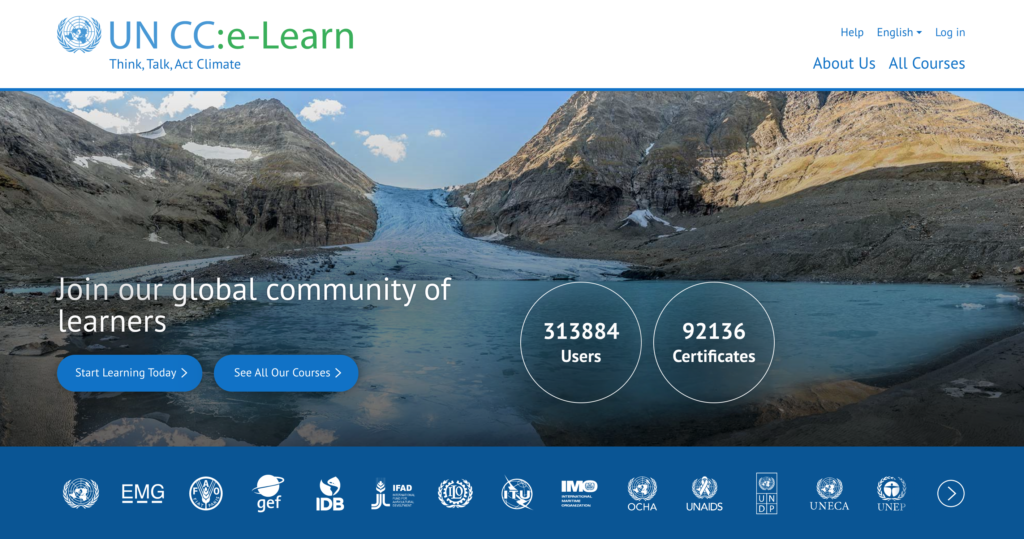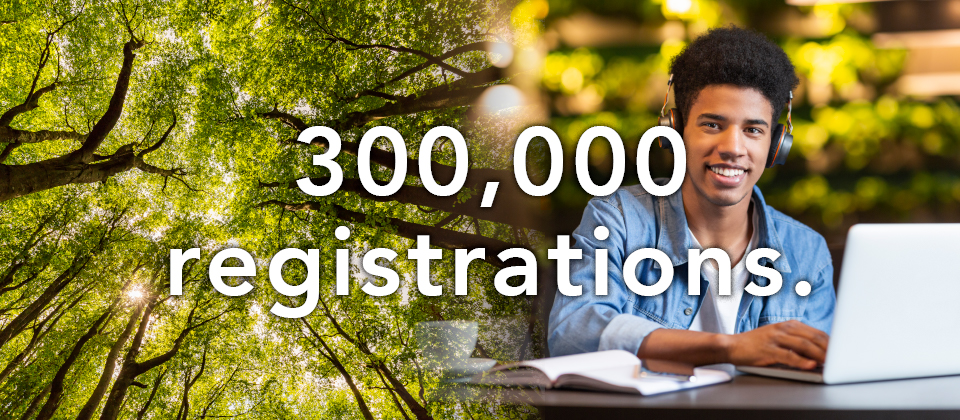Last Saturday, the UN CC:e-Learn platform reached the important milestone of 300,000 registrations. This achievement came at a time when e-learning has experienced a boost due to the lock down measures implemented in many countries to contain the Covid-19 pandemic. With people shifting their learning habits towards e-learning, it took less than three months for 50,000 new users to register on the platform. However, this would not have been possible without the full support from people from all over the world who have continually believed in UN CC:Learn mission and are committed to building a better and more sustainable future.
Over the past years, the programme has diversified its portfolio and started to offer a range of different courses on climate change and green economy with the aim of reaching different audiences, from people without any prior knowledge of these topics to experts working on these issues day-to-day. The relevance and diversity of the content proposed, which builds on the most up-to-date knowledge in each area, combined with an engaging user experience, have also contributed to the success of the free, self-paced, online courses offered by UN CC:Learn. This is reflected by the high conversion rate of the platform: almost one person out of three ends up completing a course and getting a certificate.

Multilingualism, tailoring and accessibility are cornerstones of UN CC:Learn work. Users who register to UN CC:e-Learn currently have an array of 23 different courses to choose from, many of which being offered in two or more languages. This enhances user experience by allowing them to complete the courses in their native language. The “Finding the Money – Financing Climate Action” tutorial, for instance, can be done in English, French, Spanish, and Arabic. One of the platform’s latest features, the e-course on “Climate Change: From Learning to Action”, is available in English, Spanish and French, with versions in other languages expected to come out later this year. UN CC:Learn resources also offer region-specific content, for instance through the “Sustainable Consumption and Production in Africa” course and can be accessed by individuals with impairments and on different supports.
Moving forward, UN CC:Learn will keep increasing and improving its course catalogue while exploring other ways of promoting climate literacy. On top of the courses already in the making and forecast to be launched later this year, the programme is also planning to tap on “micro-learning”, a totally new way of putting together content and experiences. Stay tuned!

